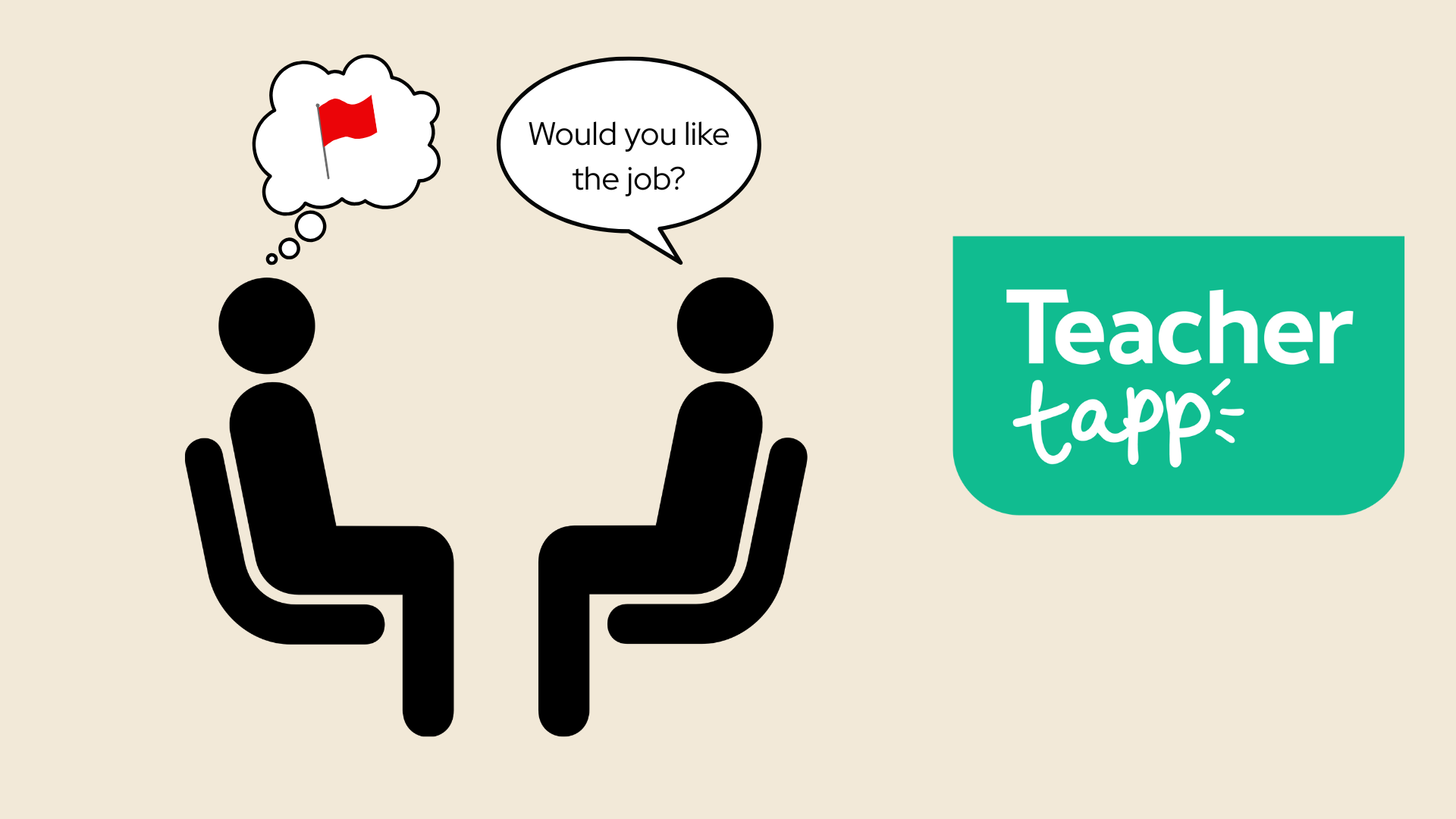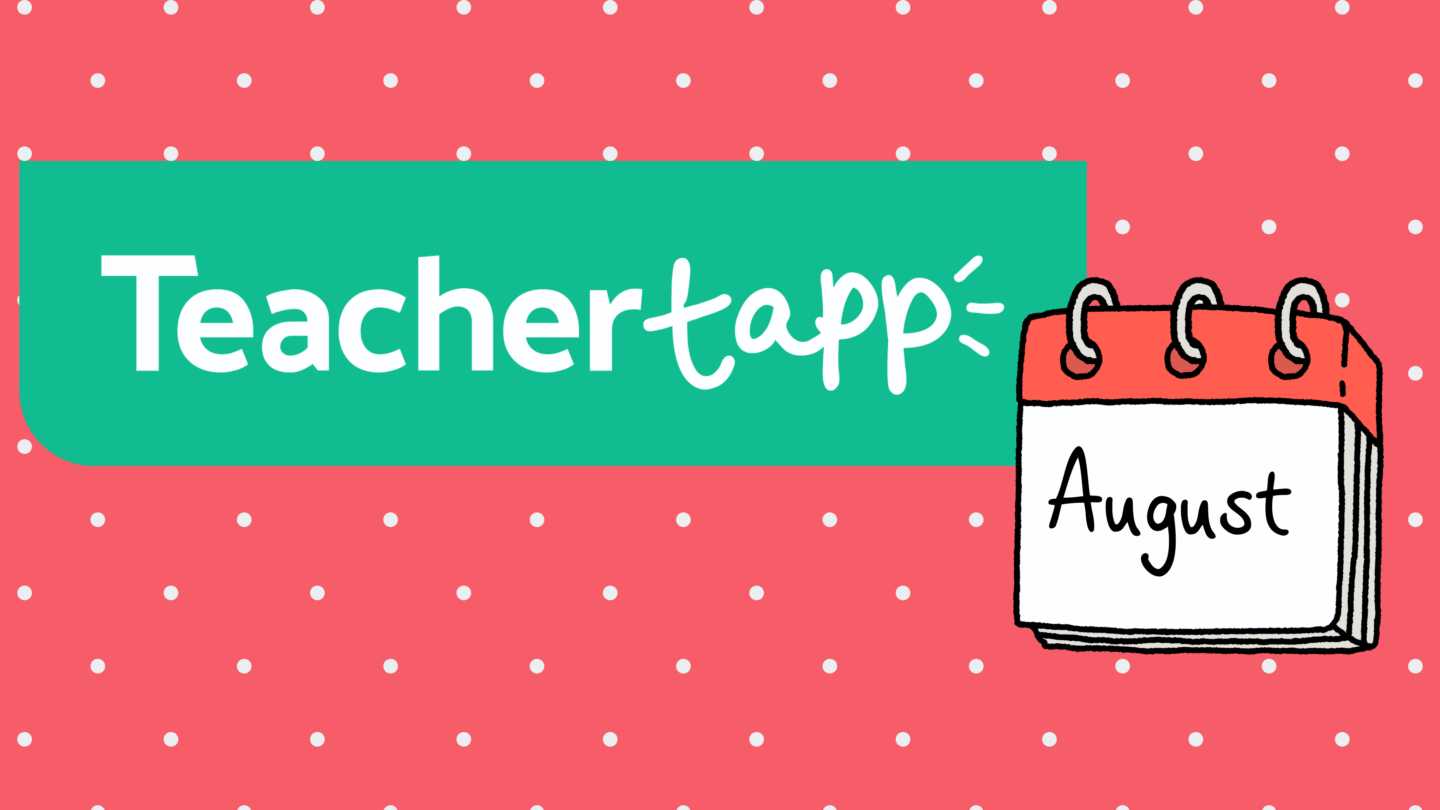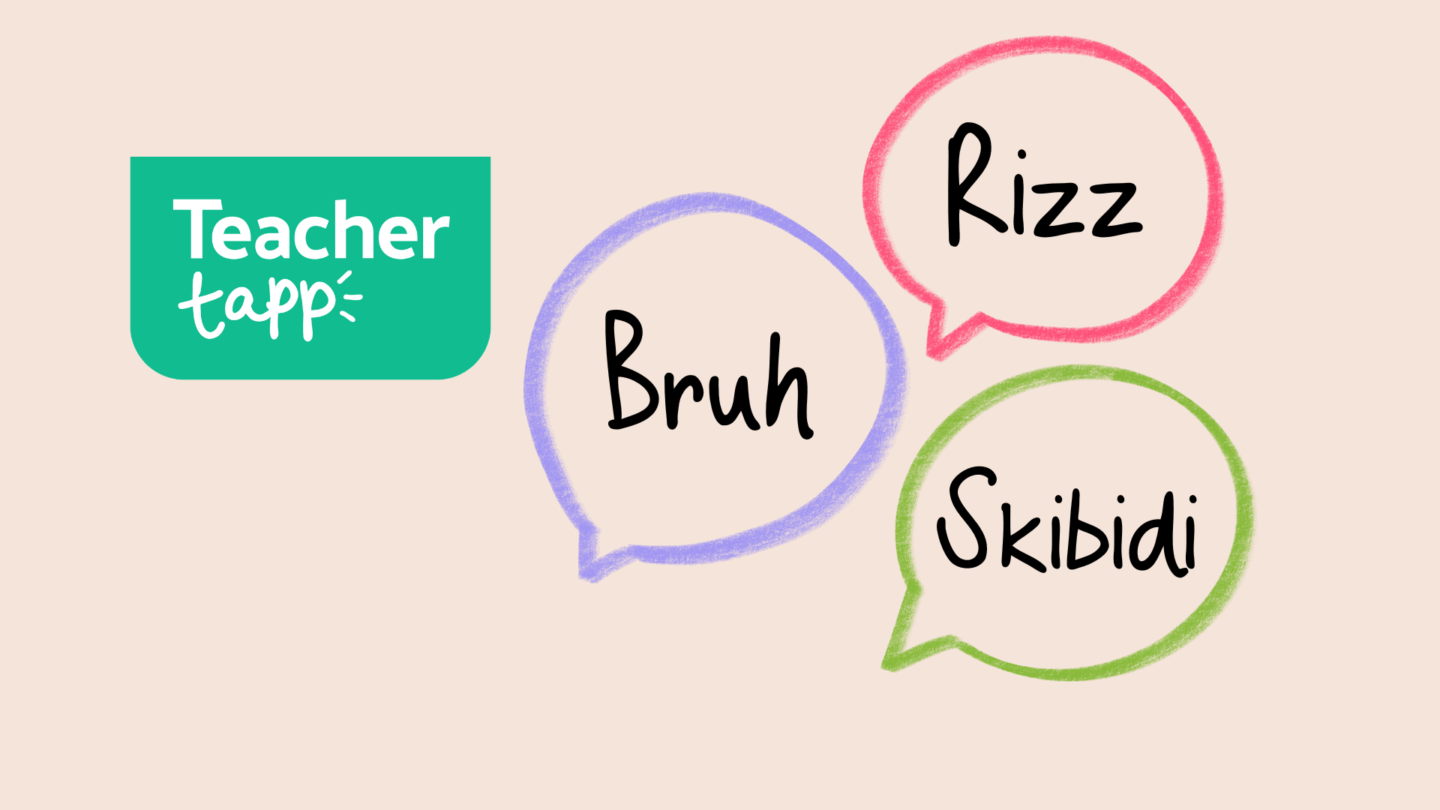Hello, Tappsters!
Last month we asked you about your experiences applying for teaching jobs (and you can read more about our findings here).
A HUGE 80% of you have been involved in the process of teacher recruitment in the last two years!
- 62% have been job hunting
- 35% put their applications in and then 35% went for interviews
- And 36% were involved on the other side of the desk and were interviewing candidates at their own schools
So clearly – you are the experts when it comes to teacher interviews.
The interview day isn’t just when the school decides if you’re right for them — it’s when you decide if they’re right for you.
But what sort of things should you be on the look out for? Teacher Tappers shared their wisdom, and had this to say…
🚩 What Are the Red Flags to Watch For on Interview Day?
- 👀 Staff ignoring student behaviour
Top of the list? Staff are ignoring poor behaviour – if when you are being shown around the school on interview walk rounds, you see poor behaviour that goes unchallenged – this should set alarm bells.
Tappers warned that if you see staff NOT intervening, or no evidence of behaviour systems, or even pupils ignoring staff presence – be wary.
One teacher saw this in their interview and lived to regret it: “Teachers ignoring bad behaviour in the corridor — especially if they are showing you round and are the head of faculty for the subject!! I ignored this, and I wish I had walked out then and there.”
2. 🔄 High staff turnover
Teacher Tappers warned against schools where there is high staff turnover. Do not be afraid to ask this on interview! Find out how many staff have left that year – this isn’t something you want to only hear about AFTER you have accepted the position.
3. ⛔️ Lack of transparency
When on an interview, you can expect to have a tour and see some classes in action, and to go into the staffroom and meet your potential future colleagues. So what if this doesn’t happen?
Many Teacher Tappers reported that this is something that should make you ask questions – what do they not want you to see? And if staff are there, but appear disengaged then this should also be a warning sign something is up.
Also – if things seem too good to be true, that’s also a bit worrying. One teacher summed this up by saying: “I’d rather staff and pupils give an honest view of the school… I’d like to see negatives as well as positives — no school is perfect.”
4. 📑 Unclear workload expectations
During your walk round, look out for signs of bureaucratic workload: how often are book checks? Are there ‘learning walks’ and how are they used? Is planning required to be handed in?
Before you say “yes” be sure it’s clear what you’re saying yes to!
“Be sure to check that there isn’t extra work expected of teachers (e.g. a folder graded termly). I’d also watch out for things like: lining up the kids outside, if they have a reputation of being an exam factory, or if there is too heavy conformity required when lesson planning,” warns one secondary teacher.
5. 🪑 Unhappy staff culture
If you see an empty staffroom, or even worse, a staffroom with lots of staff complaining, this isn’t a good sign. A staffroom with tension or complaining is rarely a one-off — take note…
Dos and Don’ts for when you’re being interviewed
DO look at how staff, as well as students, behave around the school.
DON’T wait to be told about staff turnover – ask the question!
DO ask to meet the team if this isn’t part of your day.
DON’T assume workload expectations will be the same as your last school – check policies!
DO trust your gut! If you get a bad feeling, that is usually for a good reason!
10 Questions to ask
Whether it’s at the end of the interview, or while you’re on the school tour – here are some good questions to have on hand and be ready to ask!
- “How would you describe staff retention here over the last few years?”
- “What’s the marking policy like in practice?”
- “Can I visit a lesson in the key stage/department I’d be joining?”
- “How much flexibility do teachers have in how they deliver the curriculum?”
- “Is there a shared bank of resources within the department?”
- “How are lesson observations or learning walks typically carried out?”
- “What support is in place for early career teachers or new starters?”
- “How long have most staff in the department been here?”
- “Is there protected time for planning or curriculum development?”
- “Is it possible to speak with someone currently in the role or team?”





